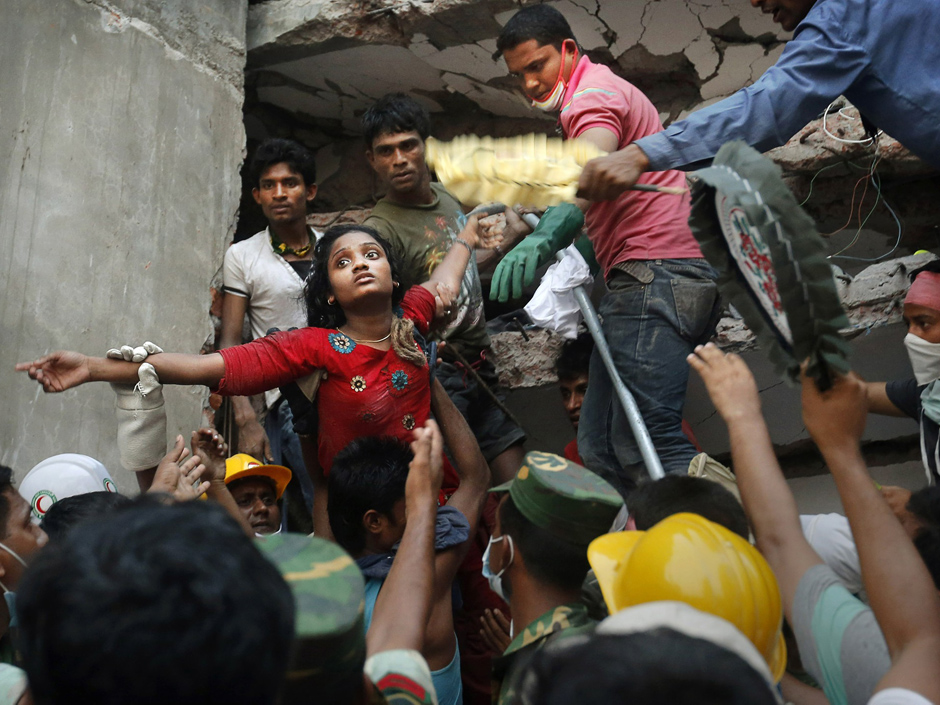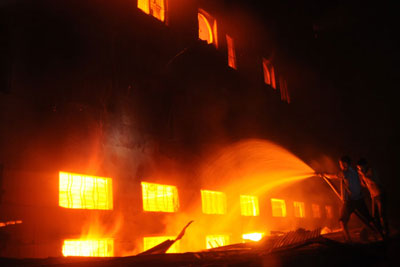Bangladeshi workers under attack

A Bangladeshi woman survivor is lifted out of the rubble by rescuers at the site of a building that collapsed on Wednesday 24 April in Savar, near Dhaka, Bangladesh.
In Greece, where unemployment has hit 27 percent, the fascist Golden Dawn party is helping to divert popular anger against capitalism into divisive xenophobic hatred of ‘foreigners stealing our jobs’.
When some 200 migrant agricultural labourers, mostly from Bangladesh, came to demand unpaid wages going back six months or more, at least 28 of them were shot and injured by gun-wielding thugs. Three of the foremen at the strawberry plantation in Nea Manolada where they worked are being blamed for the murderous assault.
This racist violence is the most recent in a string of similar attacks against Asian and African workers in Greece.
And as if to clarify what might drive Bangladeshis to leave their homes and expose themselves to such racist poison in the first place, the true face of imperialist superexploitation has been on shameful display in Bangladesh itself, with the death of over 1,000 textile workers, mostly women, when the Rana Plaza complex in which they worked collapsed.
Some 3,000 people were estimated to be working there at the time of collapse, despite the fact that only days earlier large cracks had been detected and reported. Workers in the building were told to continue coming in to work on pain of dismissal.
Back in November, similar disregard by factory owners for the lives of their workers had been shown in the Tazreen factory fire. On that occasion workers were told it was a false alarm and ordered back to work. When they tried to escape, they were blocked by a locked fire door. That fire claimed 112 lives.
The grim conclusion is that whether Bangladeshi workers stay at home or travel abroad, the end result is the same: superexploitation at best, and at worst an early grave. The immediate owners of the collapsed factory may be justly pilloried, as may the thugs in Greece who shot the strawberry-pickers, but in neither case will the real criminal be called to account – capitalism itself.
Whatever happens to the local factory bosses, we can be sure that the monopoly capitalists running Primark and Matalan will not be required to answer for the lives of those who died stitching their garments. At least, not yet.

